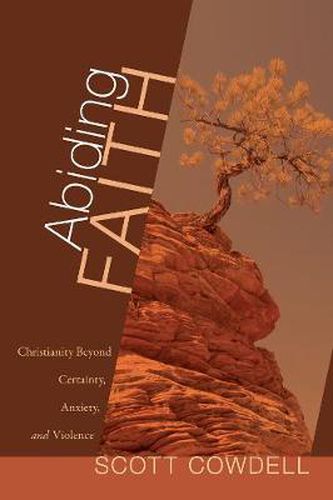Readings Newsletter
Become a Readings Member to make your shopping experience even easier.
Sign in or sign up for free!
You’re not far away from qualifying for FREE standard shipping within Australia
You’ve qualified for FREE standard shipping within Australia
The cart is loading…






This title is printed to order. This book may have been self-published. If so, we cannot guarantee the quality of the content. In the main most books will have gone through the editing process however some may not. We therefore suggest that you be aware of this before ordering this book. If in doubt check either the author or publisher’s details as we are unable to accept any returns unless they are faulty. Please contact us if you have any questions.
Australian theologian Scott Cowdell explores how having faith has changed under the influence of modernity and post-modernity in the West. He returns faith from pious sentimentality and arid philosophy of religion to the realm of participating knowing, paradigmatic imagination, and personal transformation where it belongs as a form of life, shaped by encounter with Jesus Christ and worked out through the Eucharistic community. This is shown to have been the typical understanding of faith from Saint Paul to the Fathers to the medieval monastic theologians. Since the rise of nominalism, however, modern individuals reflecting a God newly remote from the world have struggled to maintain this participatory vision of faith as a formative habitat. Mysticism is as close as modernity got, while officially faith was annexed by modern Western culture, coming to share its anxious need for certainty and control–systemic, exclusive, and violent-tending. Scott Cowdell has written a wide-ranging book, bringing together several normally separate debates while tackling the problem from a distinctive perspective. He explores faith against the backdrop of secularization, the collapse of community, and the encroachment of an intentionally destabilizing consumer culture. He expounds the nature of desire in terms of imitation and rivalry, and the violent false-sacred roots of cultural formation evident in the modern West’s many victims, all according to the uniquely comprehensive vision of Rene Girard. Finally, he dismisses today’s growing mood of militant religious skepticism as philosophically outdated and out of its depth before the resilient confidence of a genuine living faith. What Cowdell calls abiding faith emerges as a venerable yet strikingly contemporary possibility. This is good news for today’s homeless hearts–there is the gift of a secure identity and a mature spirituality on offer, within a liberating, inclusive, world-affirming, ecclesial form of life.
$9.00 standard shipping within Australia
FREE standard shipping within Australia for orders over $100.00
Express & International shipping calculated at checkout
This title is printed to order. This book may have been self-published. If so, we cannot guarantee the quality of the content. In the main most books will have gone through the editing process however some may not. We therefore suggest that you be aware of this before ordering this book. If in doubt check either the author or publisher’s details as we are unable to accept any returns unless they are faulty. Please contact us if you have any questions.
Australian theologian Scott Cowdell explores how having faith has changed under the influence of modernity and post-modernity in the West. He returns faith from pious sentimentality and arid philosophy of religion to the realm of participating knowing, paradigmatic imagination, and personal transformation where it belongs as a form of life, shaped by encounter with Jesus Christ and worked out through the Eucharistic community. This is shown to have been the typical understanding of faith from Saint Paul to the Fathers to the medieval monastic theologians. Since the rise of nominalism, however, modern individuals reflecting a God newly remote from the world have struggled to maintain this participatory vision of faith as a formative habitat. Mysticism is as close as modernity got, while officially faith was annexed by modern Western culture, coming to share its anxious need for certainty and control–systemic, exclusive, and violent-tending. Scott Cowdell has written a wide-ranging book, bringing together several normally separate debates while tackling the problem from a distinctive perspective. He explores faith against the backdrop of secularization, the collapse of community, and the encroachment of an intentionally destabilizing consumer culture. He expounds the nature of desire in terms of imitation and rivalry, and the violent false-sacred roots of cultural formation evident in the modern West’s many victims, all according to the uniquely comprehensive vision of Rene Girard. Finally, he dismisses today’s growing mood of militant religious skepticism as philosophically outdated and out of its depth before the resilient confidence of a genuine living faith. What Cowdell calls abiding faith emerges as a venerable yet strikingly contemporary possibility. This is good news for today’s homeless hearts–there is the gift of a secure identity and a mature spirituality on offer, within a liberating, inclusive, world-affirming, ecclesial form of life.